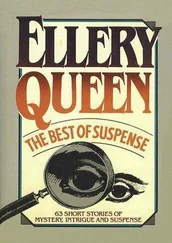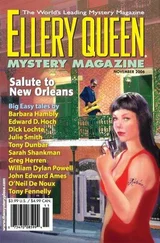John Doran - Memoir of Queen Adelaide, Consort of King William IV.
Здесь есть возможность читать онлайн «John Doran - Memoir of Queen Adelaide, Consort of King William IV.» — ознакомительный отрывок электронной книги совершенно бесплатно, а после прочтения отрывка купить полную версию. В некоторых случаях можно слушать аудио, скачать через торрент в формате fb2 и присутствует краткое содержание. Жанр: foreign_antique, foreign_prose, на английском языке. Описание произведения, (предисловие) а так же отзывы посетителей доступны на портале библиотеки ЛибКат.
- Название:Memoir of Queen Adelaide, Consort of King William IV.
- Автор:
- Жанр:
- Год:неизвестен
- ISBN:нет данных
- Рейтинг книги:3 / 5. Голосов: 1
-
Избранное:Добавить в избранное
- Отзывы:
-
Ваша оценка:
- 60
- 1
- 2
- 3
- 4
- 5
Memoir of Queen Adelaide, Consort of King William IV.: краткое содержание, описание и аннотация
Предлагаем к чтению аннотацию, описание, краткое содержание или предисловие (зависит от того, что написал сам автор книги «Memoir of Queen Adelaide, Consort of King William IV.»). Если вы не нашли необходимую информацию о книге — напишите в комментариях, мы постараемся отыскать её.
Memoir of Queen Adelaide, Consort of King William IV. — читать онлайн ознакомительный отрывок
Ниже представлен текст книги, разбитый по страницам. Система сохранения места последней прочитанной страницы, позволяет с удобством читать онлайн бесплатно книгу «Memoir of Queen Adelaide, Consort of King William IV.», без необходимости каждый раз заново искать на чём Вы остановились. Поставьте закладку, и сможете в любой момент перейти на страницу, на которой закончили чтение.
Интервал:
Закладка:
Things did not progress more in tune with marriage-bells in the House of Lords. There, when Lord Liverpool stated what his royal client would be contented to receive, Lord King started to his legs and exclaimed, "That the question was not what it might please the Duke of Clarence to take, but what it might please the people to give him!" They were not willing to give what he expected, and for a time it seemed as if there would consequently be no marriage with the Princess of Saxe-Meinengen. But only for a time.
"The Duke of Clarence is going to be married, after all," was a common phrase launched by the newspapers, and taken up by the people, in 1818. If the phrase had but one meaning, it had a double application. In the former sense, it had reference to the disinclination of Parliament to increase his income, without which he had expressed his determination not to marry. It was further applied, however, to the old course of his old loves. There were the years spent with Dora Bland, then "Mrs. Jordan," the actress, – years of an intercourse which had much of the quiet, happy character of a modest English home, – the breaking-up of which brought such great grief to the mother in that home, that even every service subsequently rendered to her, seemed to partake of the quality of offence. It has been registered as such, by those who heard more of the wailing of the Ariadne, than they knew of the groundlessness of it, when vented in reproaches for leaving her unprovided for as well as deserted.
Then the public remembered how this light-of-heart Duke had been a suitor to other ladies. He was the rival of Wellesley Pole, for the favour and the fortune of the great heiress, Miss Tilney Long. That ill-fated lady conferred on this wooer of humbler degree, the office of slaying her happiness, sapping her life, and mining her estate. The other lady, who declined the Duke's offer of his hand, or petition for her own, was Miss Sophia Wykeham, of Thame Park, daughter and sole heiress of an Oxfordshire 'squire. Each lady had merits of her own, and other attractions besides those which lay in the beaux yeux de sa cassette ; but, perhaps, each remembered the clauses of the royal marriage act; however this may have been, Miss Tilney chose between her suitors, while Miss Wykeham, after turning from the prayer of the Duke, never stooped to listen to a lowlier wooer.
These were the "antecedents" of the lover who, in maturer age, took, rather than asked for, the hand of Adelaide of Saxe-Meinengen. Of all the actions of his life, it was the one which brought him the most happiness; and with that true woman he had better fortune than is altogether merited by a man, who, after a long bachelorship of no great repute, settles down in middle-life to respectability and content, under the influences of a virtuous woman, gifted with an excellent degree of common-sense.
In the dusk of a July evening, in the year 1818, this unwooed bride quietly arrived, with her mother, at Grillon's Hotel, Albemarle Street. She had but cool reception for a lady on such mission as her own. There was no one to bid her welcome; the Regent was at Carlton House at dinner, and the Duke of Clarence was out of town on a visit. Except the worthy Mr. Grillon himself, no person seemed the gladder for her coming. In the course of the evening, however, the Regent drove down to Albemarle Street; and, at a later hour, the more tardy future-husband was carried up to the door in a carriage drawn by four horses, with as much rapidity as became a presumed lover of his age, in whom a certain show of zeal was becoming.
The strangers became at once acquainted; and acquaintance is said to have developed itself speedily into friendship. The family-party remained together till near upon the "wee sma'" hours; there was much indulgence there, we are told, of good, honest, informal hilarity; and when the illustrious and joyous circle broke up, the easy grace, frankness, and courtesy of the Regent, and the freedom and light-heartedness of the Duke, are said to have left favourable impressions on both the mother and the daughter.
Quaintest of royal weddings was that which now took place in old Kew Palace. Indeed, there were two, for the Duke of Kent who had gallantly fetched his wife from abroad, and had married her there, according to Lutheran rites, was now re-married to his bride, according to the forms of the Church of England. Early in the day, there was a dinner, at which the most important personages in that day's proceedings were present. The old house at Kew seemed blushing in its reddest of bricks, out of pure enjoyment. The Regent gave the bride away; and, the ceremony concluded, the wedded couples paid a visit to the old Queen in her private apartment. She was too ill, then, to do more than congratulate her sons, and wish happiness to the married. The Duke and Duchess of Kent thereupon departed, but the Duke and Duchess of Clarence remained, – guests at a joyous tea party, at which the Regent presided, and which was prepared alfresco, in the vicinity of the Pagoda. It must have been a thousand times a merrier matter than wedding state-dinners of the olden times, at which brides were wearied into suffering and sulkiness. If the figure about "cups which cheer but not inebriate" had not been worn to the finest tenuity, I might at once give it, here, application and illustration. Suffice it to say, that a more joyous party of noble men and women never met in mirthful greenwood; and when the princely pair took their leave, for St. James's, the Regent led the hilarious cheer, and sped them on their way, with a "hurrah!" worthy of his bright and younger days.
The Regent, undoubtedly, manifested a clearer sense of the fitness of things, on this occasion, than either of the managers of the theatres, honoured by the presence of the newly-married couple soon after the union.
At Drury Lane, was given the "Marriage of Figaro," and Covent Garden complimented the Duke and Duchess with the "Provoked Husband."
It cannot be said that the public looked with much enthusiasm on any of the royal marriages. Such unions with rare exceptions, are unpleasantly free from sentiment or romance; and, in the present instances, there was such a matter-of-fact air of mere "business" about these contracts and ceremonies, such an absence of youth, and the impulses and the dignity of youth, that the indifferent public, even remembering the importance of securing a lineal succession to the throne, was slow to offer either congratulation or sympathy. The caricaturists, on the other hand, were busy with a heavy and not very delicate wit; and fashionable papers, uniting implied censure with faint praise, observed that "the Duchesses of Kent, Clarence, and Cambridge are very deficient in the English language. They can scarcely speak a sentence. They possess most amiable dispositions." It may be added, that they also possessed true womanly qualities which won for them the esteem of husbands, of whom two of the three, at least, had never been remarkable for a chivalrous, a gentlemanlike, a manly respect for women. That was a sort of homage rarely paid by most of the sons of George III., and I am afraid, that our fathers generally are obnoxious to the same remark.
After a brief residence at St. James's, and as brief a sojourn at the Duke's residence in Bushey Park, the Duke and Duchess of Clarence repaired to Hanover, and remained there about a year, – no incident marking the time that is worthy of observation. The issue of this marriage scarcely survived the birth. In March 1819, a daughter was born, but to survive only a few hours. In December 1820, another princess gladdened the hearts of her parents, only to quench the newly-raised joy by her death in March of the following year. The loss was the keener felt because of the hopes that had been raised; and the grief experienced by the Duke and Duchess was tenderly nourished, rather than relieved, by the exquisite art of Chantrey, which, at the command of the parents, reproduced the lost child, in marble, – sleeping for ever where it lay.
Читать дальшеИнтервал:
Закладка:
Похожие книги на «Memoir of Queen Adelaide, Consort of King William IV.»
Представляем Вашему вниманию похожие книги на «Memoir of Queen Adelaide, Consort of King William IV.» списком для выбора. Мы отобрали схожую по названию и смыслу литературу в надежде предоставить читателям больше вариантов отыскать новые, интересные, ещё непрочитанные произведения.
Обсуждение, отзывы о книге «Memoir of Queen Adelaide, Consort of King William IV.» и просто собственные мнения читателей. Оставьте ваши комментарии, напишите, что Вы думаете о произведении, его смысле или главных героях. Укажите что конкретно понравилось, а что нет, и почему Вы так считаете.












